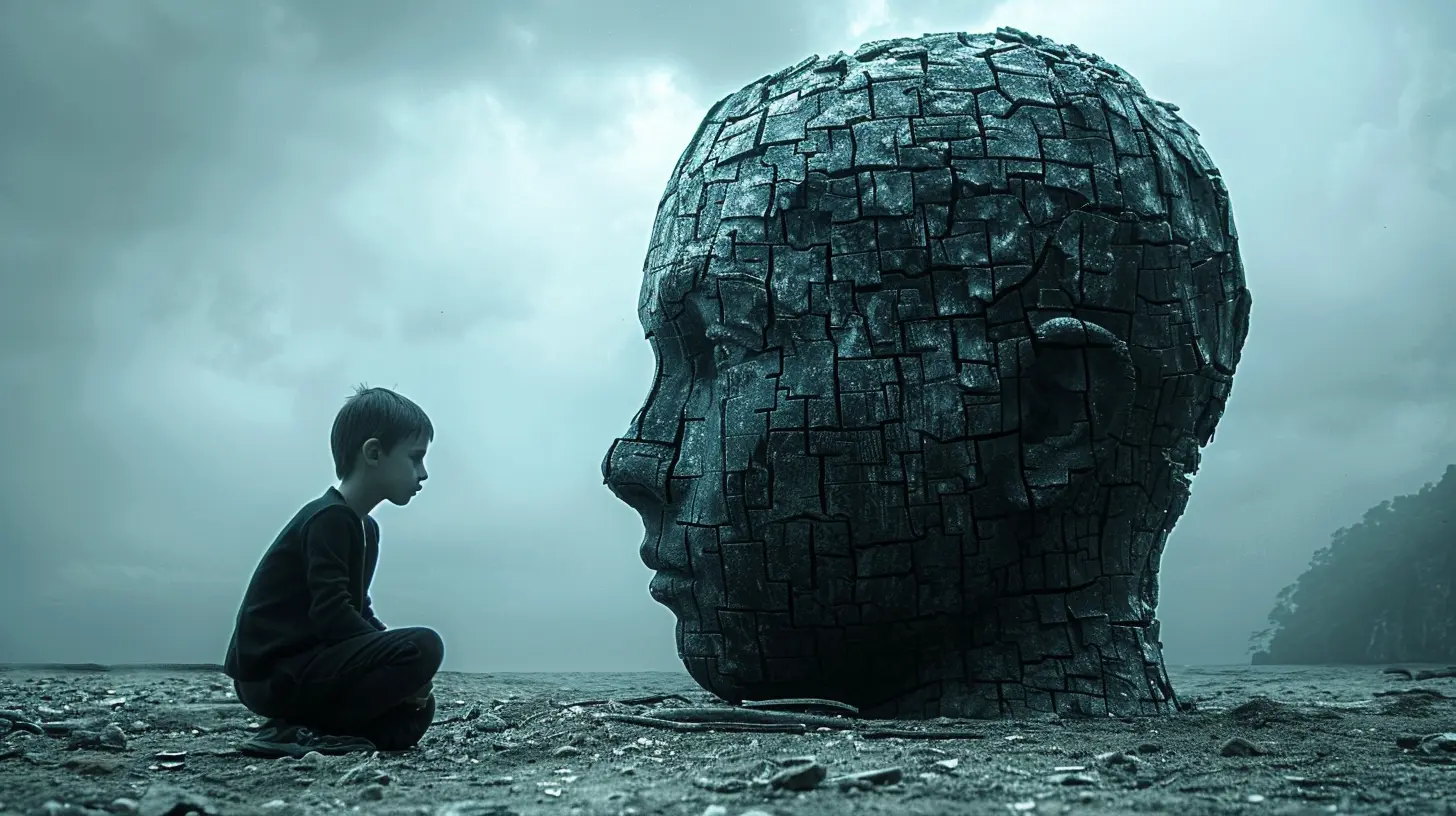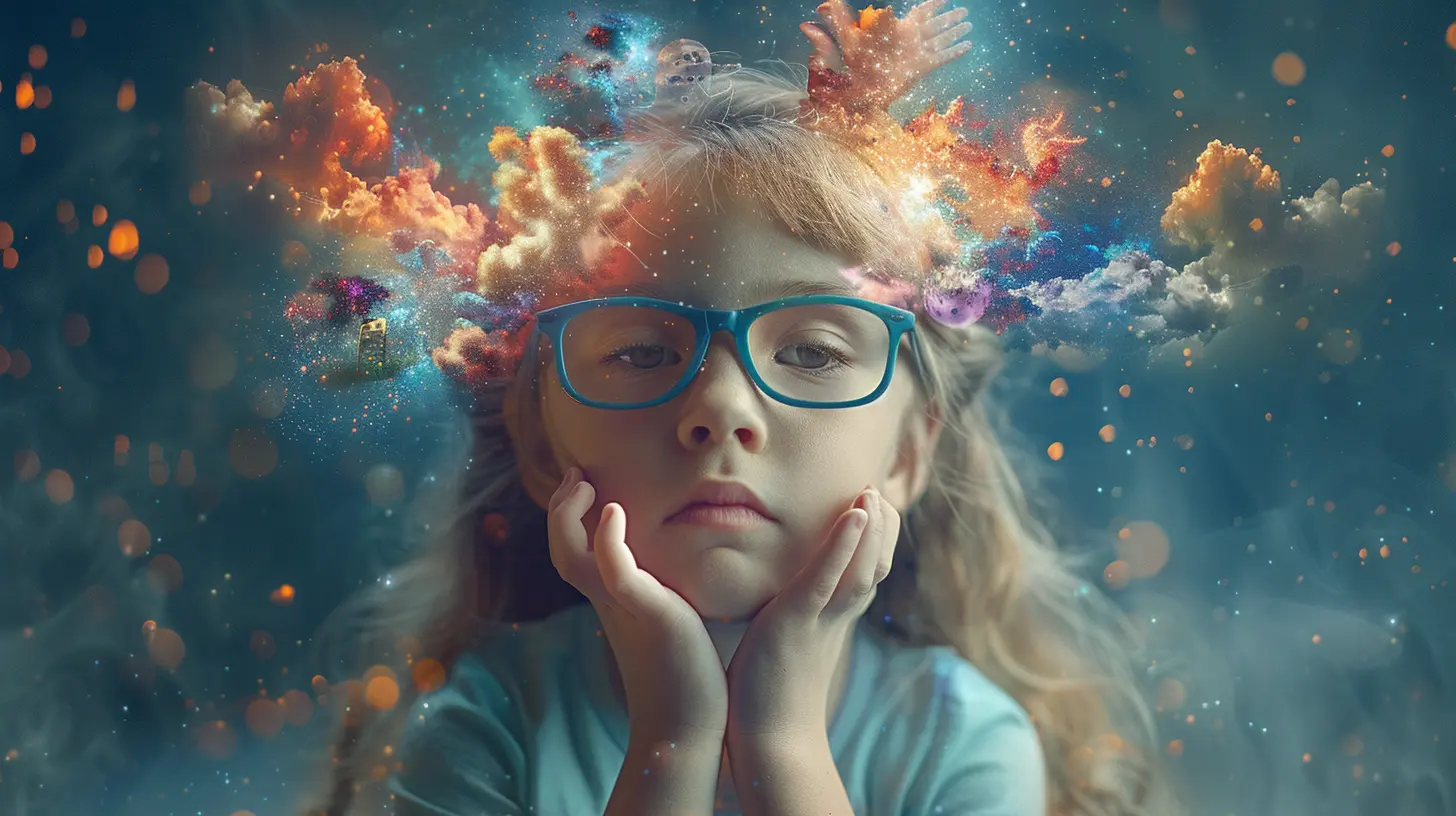The Role of Play in Cognitive Development
11 September 2025
When was the last time you got truly lost in play? For adults, it might feel like a distant memory. But for children, play is a natural state—a crucial part of how they make sense of the world. And here's something incredible: it's not just fun and games. Play is a powerful engine behind cognitive development. That means, when kids pretend to be pirates or stack blocks sky-high, they're actually building brain power.
Let’s dive into how and why play matters so much for a child’s mental growth—and what that means for parents, educators, and even adults who may have forgotten how to play.
What Is Cognitive Development, Anyway?
Before we can understand the role of play, we need to grasp what cognitive development really is. In simple terms, it's how a child thinks, explores, learns, and solves problems. Think of it as mental growth—like the brain going to the gym.Cognitive development includes:
- Memory
- Attention span
- Problem-solving
- Language development
- Imagination
- Decision-making
As children grow, their brains become more complex. Their thinking abilities expand like a sponge soaking up information. And play? That’s the water for the sponge.
Why Play Is So Important for the Brain
Play is not a break from learning. It's the way young children learn. It's how they experiment, make mistakes, try new things, and figure life out. Whether they're building a LEGO tower or juggling imaginary dinosaur eggs, their minds are busier than we realize.Here's the scoop: neuroscientists have found that play lights up areas of the brain tied to higher-order thinking. That includes the prefrontal cortex—the zone responsible for decision-making, planning, and regulating social behavior.
In essence, play helps wire the brain in ways that nothing else can.
Types of Play That Promote Cognitive Development
Not all play is created equal. Different forms of play stimulate different areas of the brain. Here's a breakdown of the most valuable types:1. Pretend Play (a.k.a. Dramatic or Imaginative Play)
Ever seen a child talk to an invisible friend or pretend to be a superhero? That’s pretend play. It encourages abstract thinking, planning, and emotional regulation. Kids practice taking on different perspectives, which helps build empathy too.Want a metaphor? Pretend play is like a mental sandbox—it lets kids mold and reshape ideas freely.
2. Constructive Play
Building forts, stacking blocks, creating puzzles—this is all constructive play. It develops spatial awareness, fine motor skills, cause-and-effect reasoning, and logical thinking.It’s like laying down the mental bricks of problem-solving skills.
3. Physical Play
Running, jumping, climbing, or dancing—these aren’t just ways to burn energy. Physical play connects movement to brain function. It improves memory, attention, and even academic performance. There's a strong link between movement and learning, especially in early childhood.Think of it as jump-starting the brain—literally.
4. Games with Rules
Board games, card games, even simple games like "Simon Says" teach kids how to follow directions, think strategically, and manage impulses. They offer structure and challenge, which promote executive functions—the CEO skills of the brain.5. Social Play
When kids play together, they're not just entertaining themselves—they're learning how to communicate, negotiate, and collaborate. Social play builds cognitive flexibility and emotional intelligence.It’s where brains meet and bounce ideas off each other like ping-pong balls.
The Science Behind Play and Brain Growth
So, how exactly does play change the brain?Research shows that play boosts the production of brain-derived neurotrophic factor (BDNF)—a protein crucial for brain development and plasticity. In plain English, BDNF helps brain cells grow and form connections.
Here’s what else science tells us:
- Neural Pathways Strengthen: Repeated activities during play strengthen the connections between brain cells.
- Dopamine Is Released: Play is fun, and fun feels good—thanks to dopamine. This “feel-good” chemical helps with motivation and learning.
- Cognitive Load Is Managed: Play allows children to explore complex concepts in a low-pressure environment.
Neuroscience isn’t just backing up what parents have long known—it’s shouting it from the rooftops. Play isn’t optional. It’s essential.
How Age Influences Play and Cognitive Growth
Let’s break it down by age to see how play evolves and supports cognitive development at each stage.Infants (0–2 years)
At this stage, play is mainly sensory. Babies use their five senses to explore the world. Rattles, mirrors, peekaboo—these aren’t just cute. They’re forming the foundation for memory, attention, and object permanence.Toddlers (2–3 years)
Now it’s all about movement and early imagination. They love to mimic adults and repeat simple tasks. Playing with cause-and-effect toys (like pop-up boxes) helps them understand control over their environment.Preschoolers (3–5 years)
This is the golden age for pretend play. Kids start creating elaborate stories and taking on different roles. It’s a huge time for language development, emotional expression, and narrative thinking.Early School Age (6–8 years)
Now children start to enjoy structured games and activities with rules. This supports advanced planning, teamwork, and executive functions like attention shift and self-control.Tweens and Beyond (9+)
Older kids still benefit from play—especially strategic games, creative problem-solving, and scenario-based learning. Think team sports, video games with logic elements, and storytelling games.Even teens learn best when play is involved—especially when it sneaks into learning through gamified experiences.
Play in the Classroom: Yes, It Belongs There!
Some people still think play doesn’t belong in the classroom. But integrating play into learning isn’t just helpful—it’s vital. Children learn best when they’re engaged and active. Adding more play-based activities to school fosters better academic outcomes and student well-being.Examples of classroom-based play:
- Role-playing historical events
- Using blocks to learn math
- Word games for building vocabulary
- Science experiments as hands-on play
Let’s be clear: more worksheets don’t mean more learning. But more play? That’s where the magic happens.
Screens and Modern Play: Help or Harm?
With smartphones and tablets everywhere, children’s play has shifted toward digital spaces. But does screen time count as “real play”?Well, it depends.
🟢 Pros:
- Some apps can promote problem-solving and creativity.
- Interactive games can build skills like memory, coordination, or storytelling.
🔴 Cons:
- Passive screen time (like watching videos) offers little cognitive benefit.
- Too much screen time can limit physical and social play.
Balance is key. The best kind of play still involves open-ended exploration, movement, and face-to-face interaction.
The Adult Role in Child’s Play
Here’s where you come in. As a parent, caregiver, or teacher, your involvement in a child’s play can supercharge its benefits.Simple ways to support cognitive play:
- Ask open-ended questions: “What happens next in your story?”
- Join pretend games: Be the dragon or the shopkeeper.
- Provide varied materials: Blocks, art supplies, costumes, puppets.
- Allow unstructured time: Not every moment needs to be scheduled.
You don’t have to direct the play—just support it. Be present. Be playful. Kids will do the rest.
Bringing It All Together
So now you know—play isn’t just leisure. It’s learning in disguise. It sharpens memory, strengthens language, boosts emotional intelligence, and teaches problem-solving. From peekaboo to board games, every playful moment counts.Encouraging play isn’t just about giving kids time to goof off. It’s about giving their brains the best possible start. And the more we understand that, the better future we build for them.
Remember: play is the brain’s favorite way of learning. So the next time you see a child deep in a game—don’t interrupt. They’re busy working on their future.
Final Thoughts: Let’s Not Forget to Play
Children aren’t the only ones who benefit from play. Adults need it too. Play fuels creativity, reduces stress, and boosts cognitive flexibility no matter your age.So go ahead—build that pillow fort. Join in a game of tag. Play a board game after dinner. Your brain (and your child’s) will thank you.
all images in this post were generated using AI tools
Category:
PsychologyAuthor:

Gloria McVicar
Discussion
rate this article
1 comments
Soryn Fletcher
Play isn't just fun; it's a vital workout for the brain, shaping creativity and problem-solving skills essential for lifelong learning.
October 6, 2025 at 4:17 AM

Gloria McVicar
Absolutely! Play is crucial for cognitive development, fostering creativity and enhancing problem-solving abilities that benefit lifelong learning. Thank you for highlighting this important aspect!


